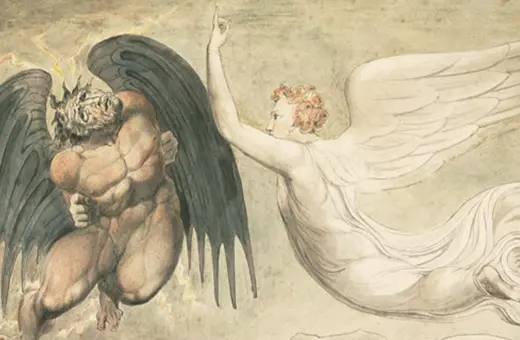We are all wary of the power of negative emotions, while treating positive emotions as good without qualification. That's a mistake. Positive emotions can be just as dangerous as negative ones. And negative emotions often have the same source as positive emotions, caring about something, writes Krista Thomason.
You’ve been warned not to let your anger get the best of you and that it’s okay to feel anger sometimes as long as you manage it well. Negative emotions get compared to cancers, toxins, or monsters – they eat you up from the inside if you keep feeling them. But you’ve probably never heard people say any of these things about joy. No one ever warns you that joy will eat you up from the inside.
Sometimes negative emotions are treated like drugs that you’ll get addicted to if you feel them too much. We treat negative emotions like weapons: you should either avoid them altogether or handle them with caution – otherwise you’ll hurt yourself or someone else, or maybe both.
No one seems too worried about whether you can get hooked on positive emotions, or whether they can be dangerous to yourself and others. There’s apparently no reason to treat positive emotions with such caution. Anger and joy are both emotions; they belong in the same psychological category. So why do we talk about them in radically different ways?
SUGGESTED VIEWING How to view suffering With Martin Seligman, Mandy Seligman
Negative emotions are the victims of what I call the emotion double standard. You see the emotion double standard at work when people assume negative emotions have powers that positive emotions don’t have. Negative emotions poison you and make you sick, but positive emotions don't. Negative emotions are always on the brink of getting out of control, but positive emotions always behave. Negative emotions can overtake us, but positive emotions don’t threaten to possess us this way. You’re always supposed to manage your negative emotions, yet no one tells you to do deep breathing exercises or count to ten when you feel joy.
The obvious reason for this differential treatment is that negative emotions are dangerous in a way that positive emotions aren’t. Anger causes harm. The worst that joy could do is make you annoyingly chipper. Have we unfairly exaggerated the bad reputation of negative emotions?
___
If anger was as bad as people say, you’d think every angry person would be permanently bitter and friendless, but that just isn’t true.
___
Philosophers have been writing about negative emotions since they started writing. From Confucius in 6th-century BC China to Śāntideva in 8th-century AD India to Baruch Spinoza in 16th-century Netherlands to Mary Wollstonecraft in 18th-century England, philosophers from all over the world and in every tradition have had something to say about our bad feelings.
Negative emotions are ubiquitous: everyone feels them. Think about how often you’ve been angry in your lifetime. You’ve likely been angry at people you love – maybe some of the people you love most. While you may have ended some of your relationships in anger, you’ve probably mended most of them. You’re still standing and so are your loved ones. If anger was as bad as people say, you’d think every angry person would be permanently bitter and friendless, but that just isn’t true.






















Join the conversation